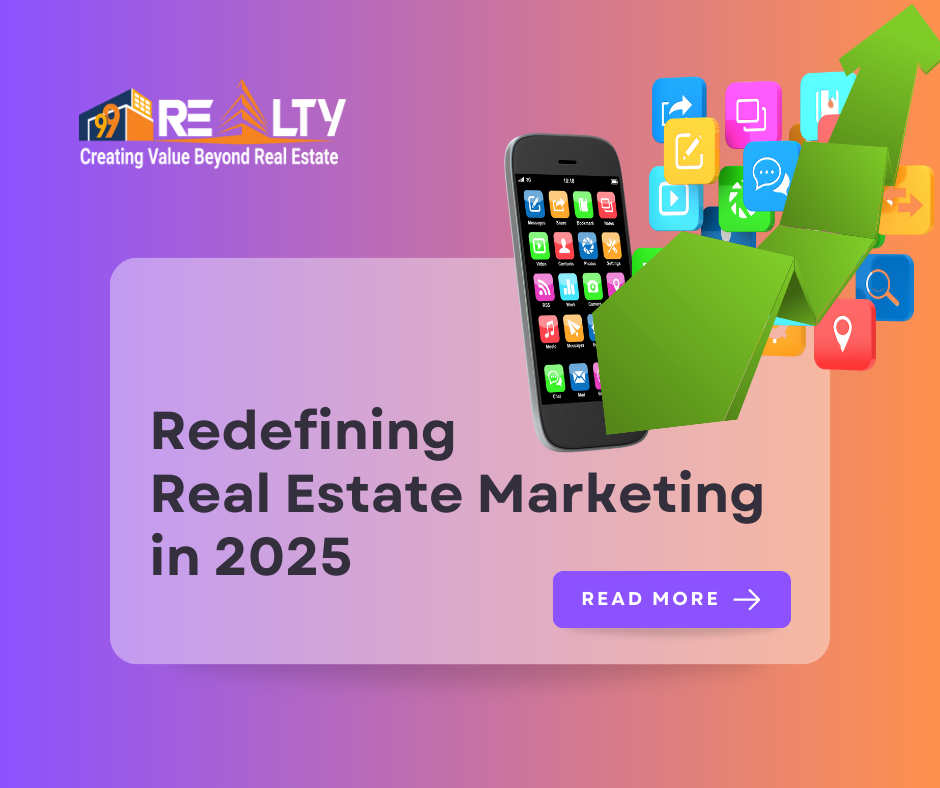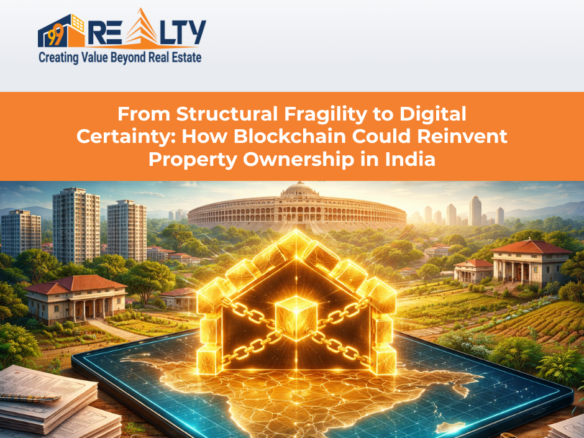In 2025, the real estate marketing landscape has undergone a significant transformation. The focus has shifted from merely showcasing properties to creating immersive experiences that resonate with the modern buyer. This guide delves into the latest trends and strategies that are redefining real estate marketing, ensuring that developers and marketers stay ahead in this dynamic industry.
1. Embracing Immersive Technologies: VR and AR in Property Showcasing
The integration of VR and AR technologies has revolutionized property showcasing. Prospective buyers can now embark on immersive virtual tours, exploring properties from the comfort of their homes. This not only enhances the buyer experience but also expands the reach to international and remote clients.
Virtual Reality (VR) Tours
Virtual Reality has revolutionized property viewings by allowing potential buyers to explore properties remotely. This technology offers a realistic sense of space and design, enabling buyers to make informed decisions without physical visits.
Augmented Reality (AR) Enhancements
AR applications enable buyers to visualize different interior design options, furniture placements, and color schemes within a property. This interactive experience fosters a deeper connection between the buyer and the property.
3D Staging and Visualization
Advanced 3D staging tools allow potential buyers to visualize furnished spaces, facilitating a deeper emotional connection with the property. This technology aids in faster decision-making and reduces the need for physical staging.
Also Read: Real Estate 2.0 and Advantage of Technology
2. Data-Driven Personalization: Leveraging AI and Analytics
By analyzing behavioral signals, search intent, and demographic data, AI enables real estate professionals to prioritize leads showing genuine buying intent. This approach reduces wasted time and increases conversions.
Predictive Analytics for Targeted Marketing
By examining historical data and market indicators, predictive analytics forecast future property values and demand, enabling developers to make informed decisions and tailor their offerings accordingly.
AI-Powered Chatbots and Content Generation
AI-driven chatbots provide instant, informative, and engaging interactions, answering inquiries 24/7, qualifying leads, and even scheduling property viewings. Additionally, AI can generate tailored listing descriptions and personalized email campaigns.
Artificial Intelligence (AI) and Machine Learning (ML)
AI and ML algorithms analyze vast datasets to provide personalized property recommendations, predict market trends, and optimize pricing strategies. This level of personalization enhances customer satisfaction and increases conversion rates.
3. Hyper-Local Targeting and Community Engagement
Optimizing content for local search terms and utilizing geo-targeted advertising ensures that marketing efforts reach the intended audience effectively. At the same time organizing local events and participating in community activities help developers build trust and establish a strong presence within the community, influencing buyer decisions.
Localized SEO and Advertising
Hyperlocal advertising involves targeting specific demographics with marketing strategies tailored to their unique preferences and needs. Utilizing localized SEO keyword analysis helps attract clients within specific regions.
Community Events and Trust-Building Initiatives
Understanding and integrating into local communities is vital. Hosting local events, participating in community initiatives, and highlighting neighborhood features in marketing materials foster trust and relatability.
4. Storytelling and Content Marketing: Building Emotional Connections
Storytelling and Emotional Connection
Crafting compelling narratives around properties helps in building emotional connections with potential buyers. Sharing stories about the community, architectural inspiration, and resident experiences adds depth to marketing campaigns.
Diverse Content Formats
Utilizing various content formats such as blogs, videos, and social media posts allows developers to reach a broader audience and convey their brand message effectively.
Video Marketing and Virtual Tours
High-quality videos, including drone footage and 360-degree tours, provide an immersive experience, allowing buyers to explore properties remotely. This visual content is highly shareable and increases engagement across digital platforms.
The Rise of Short-Form Video Content
Platforms like Instagram Reels, and YouTube Shorts have changed how consumers engage with content. Real estate companies are now using dynamic, attention-grabbing video content to showcase properties, enhancing engagement and reach.
5. Influencer Partnerships and Social Selling
Collaborating with influencers, especially micro-influencers with highly engaged audiences, can enhance brand credibility and reach. These partnerships allow for authentic promotion of properties to targeted demographics.
Social Media Campaigns
Platforms like Instagram, Facebook, and LinkedIn are essential for reaching a broader audience. Regular posts, live sessions, and interactive content keep potential buyers engaged and informed.
Collaborations with Influencers
Partnering with influencers, especially those with a strong local presence, can amplify brand visibility and credibility. Influencers can showcase properties in a relatable manner, attracting their followers to explore offerings.
6. Sustainable and Smart Living: Meeting Modern Buyer Expectations
Sustainability and smart living has become a cornerstone in real estate development. Incorporating eco-friendly materials, energy-efficient systems, smart home features and sustainable construction practices not only meets regulatory standards but also appeals to environmentally conscious and today’s smart buyers.
Green Building Practices
Developers are increasingly prioritizing eco-friendly practices, incorporating sustainable materials and energy-efficient technologies like solar panels and rainwater harvesting systems.
Smart Home Integration
Modern buyers seek homes equipped with smart technologies that offer convenience, security, and energy efficiency. Features such as automated lighting, climate control, and security systems are now standard expectations. The adoption of IoT-enabled devices in homes enhances energy efficiency, security, and automation, aligning with the preferences of tech-savvy buyers.
Also Read: The Ultimate Guide to Smart Homes and Buildings
7. Automation and Efficiency in Marketing Operations
Marketing automation tools streamline repetitive tasks, ensuring consistent communication with prospects. From email marketing to lead nurturing, automation enhances efficiency and allows marketers to focus on strategy and creativity.
CRM and Marketing Automation
Implementing Customer Relationship Management (CRM) systems and marketing automation tools streamlines communication, tracks customer interactions, and personalizes follow-ups, enhancing the overall customer journey.
Blockchain for Transparent Transactions
Blockchain technology is redefining real estate transactions by reducing fraud and ensuring transparency in land records. This innovation streamlines property documentation and enhances buyer confidence.
Also Read: Real Estate Transparency: Building Trust for Better Deals
Need Help?
Need help evaluating a property or planning your next move in the market?
Reach out to 99 REALTY – your trusted real estate partner for smarter choices.
The future of real estate marketing lies in the seamless integration of technology, personalization, and community engagement. The real estate marketing landscape in 2025 demands a multifaceted approach that combines technology, personalization, sustainability, and community engagement. By embracing these strategies, developers and marketers can effectively connect with modern buyers, foster lasting relationships, and drive successful sales outcomes.
Subscribe to get updates on our latest posts and market trends.






Join The Discussion